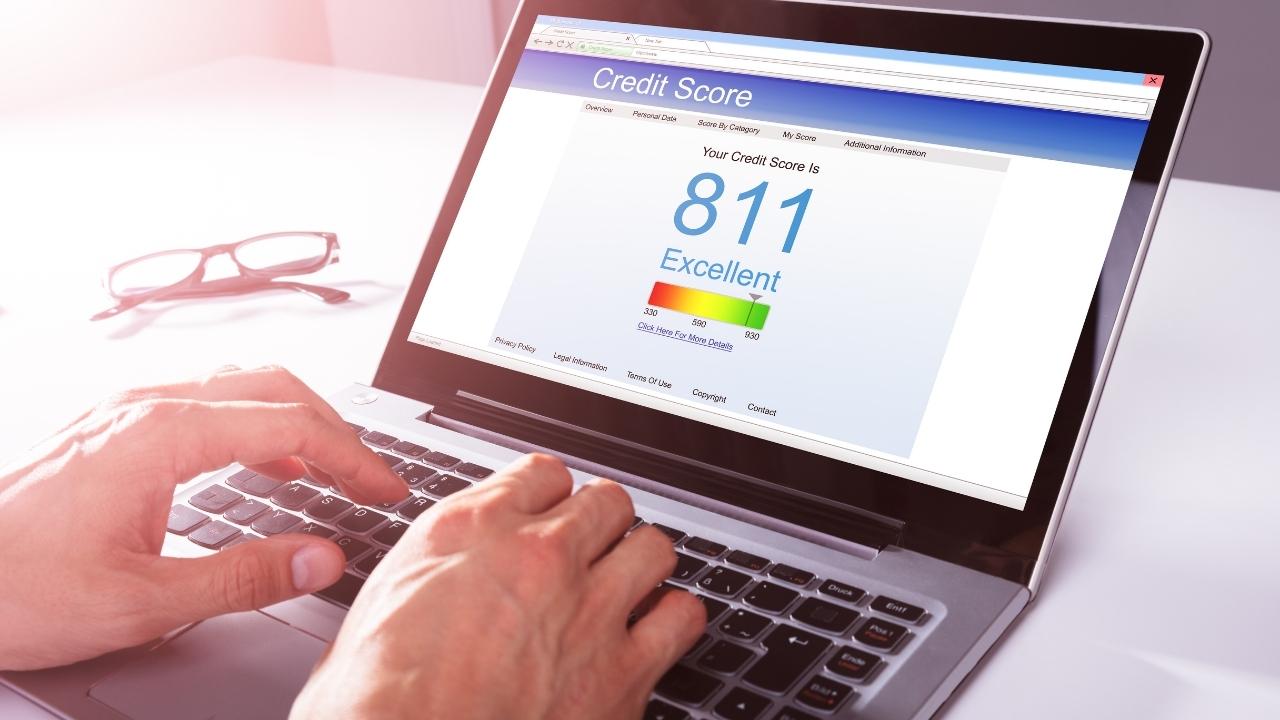One of the most important things to consider when buying a house is your credit score. Your credit score influences how much money you can borrow from a bank to finance your home purchase. So, what is the cutoff for a good credit score? And what can you do if your score is too low? Here’s what you need to know about the credit score you need to buy a house.

What is a Credit Score?
Your credit score is a fluctuating number that reflects your creditworthiness. It is based on your credit history, which records your past and present borrowing and repayment behavior.
The higher your credit score, the more respectable is your creditworthiness, and the more likely you will be approved by a lender for a loan or credit card. A low score can make it challenging to get credit and may result in higher interest rates.
A credit score is based on credit report information from credit bureaus.
What Determines Your Credit Score?
Many factors affect your credit score, but the most important is your payment history. Other factors include:
- The amount of debt you have.
- The length of your credit history.
- The types of credit you have.
Your payment history: The record of your payment history is the most critical factor in your credit score. It includes whether you have missed any payments and how long it has been since you made a late payment.
The amount of debt you have: The amount of debt you have refers to the total amount of debt that you owe, including things like credit card balances and outstanding loans. Keeping your debt levels low is vital, as high debt levels can indicate financial stress.
The length of your credit history: A longer credit history is better than a shorter one when you’ve managed your debt well. It shows that you have a track record of handling your debts responsibly.
The types of credit you have: This refers to the different kinds of credit accounts that you have, such as credit cards, mortgages, and auto loans. A mix of different types of credit can be a positive factor in your score.
How Can You Get a Copy of Your Credit Report?
What Credit Score Do You Need to Buy a House?
There is no set answer, as each lender has their own standards for what they consider to be a good credit score. However, most lenders require a score of 620 or higher. If your score is below this, you may still be able to get a loan, but you might find yourself paying a significantly higher interest rate or having get a co-signer.
A score of 700 or higher is generally considered good, and a score of 800 or higher is considered excellent. With a high credit score, you’re more likely to get approved and have a lower interest rate.
How Do You Fix a Bad Credit Score?
If your credit score is too low to get a loan, there are some things you can do to improve it.
Check your report for errors: Sometimes, errors on your credit report can lower your score. If you see any mistakes, dispute them with the credit bureau.
Pay your bills on time: The most essential element of your credit score is your payment history, so making all of your payments on time is important. Set up automatic payments if you need to, so you don’t have to worry about forgetting.
Fix derogatory marks and collections: If you have any late payments or collections on your report, get them removed. When you pay off an account in collections, get the proof of payment in writing. You can negotiate with the creditor or make a payment plan.
Reduce your debt levels: High debt levels can drag down your score, so trying to pay down your debts is essential. You can do this by making more than the minimum monthly payment or by consolidating your debts into one single loan that offers a lower interest rate.
Build a credit history: If you don’t have much of a credit history, you can start to build one by getting a secured credit card or becoming an authorized user on someone else’s card.
Increase your credit limit: Increasing your credit limit will lower your credit utilization ratio, which is the amount of debt you have as a percentage of your credit limit. A lower ratio is better for your score. You can request that your credit card company to raise your limit, or you can open a new credit card. However, your score will decrease each time you open a new account that runs your credit report.
What is a Co-signer, and When Do You Need One?
A co-signer for a loan is a person who is willing to be responsible for your debt if you can’t or don’t make your payments. In most scenarios, this is a family member or close friend. Co-signing is a big responsibility, as the co-signer’s credit will be affected if you don’t make your payments.
You may need a co-signer if you have bad credit or no credit history. Lenders may also require a co-signer if you’re self-employed or have a high debt-to-income ratio.
A debt-to-income ratio is the amount of your monthly debt payments divided by your monthly income. Most lenders use this to determine how much you can afford to borrow. A high ratio means you’re using a large portion of your income to make debt payments, which is a risk for the lender.
Conclusion
If you’re getting ready buying a house, it’s important to know what credit score you need. The majority of lenders will look for a score of 620 or higher. However, there are some things you can do to improve your score if it’s too low. You can also see if someone will co-sign for you if you have bad credit or no credit history.
Talk with your real estate agent for more information about obtaining your credit report and managing your credit score.
